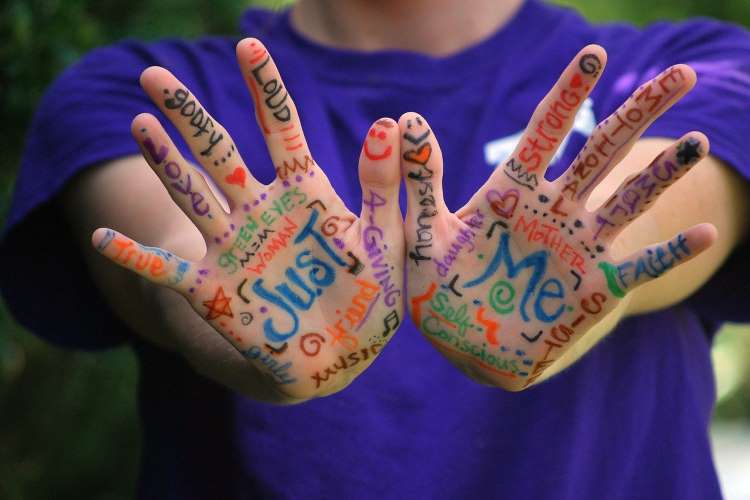Action Words for Kindergarten 4+: How to Use in Sentences?


What are Action Words?
Action words or action verbs essentially express an action. The action is something the subject of the sentence or clause is doing and includes sleeping, dancing, and running, so even though there is no movement, there is still an action.
Other examples are:
- Crawl
- Jump
- Haunt
- Kick
- Walk
- Tell
- Listen
- Eat
Examples of 5 Action Words for Kids Along with Pictures
Carol woke up early.
Learning courses for your kids! Get free trial here


I’ll play this song on my guitar.
Kids are painting.
Rishabh is walking to school.
Friends are hugging.
Also Read: Opposite Words in English for Kids: Ways to Help them Improve their Vocabulary.
Action Words for Kindergarten
jump, run, skip, hop, walk, crawl, bend, sway, swing, shake, twist, gallop, leap, roll, twirl, kick, tip-toe/tiptoe, stamp/stomp, grab, pinch, pull, push, wiggle, catch, throw, dig, wave, climb, wink, clap, yawn, blink, shuffle, creep, march, turn, ride, swim, dive, skate, dance, jog, talked, visit, bought, Jump, crawl, eat, drink, go, stop, run, walk, sleep, wash, kiss, open, close, push, pull, play, embrace, tickle, move, shake, sit, stand, toss, capture, and come.
Action Words Sentences for Kids
- 1.Riya listens to her favourite song.
- Deepak hits the baseball over the fence.
- The little pig grunts.
- The roof of the house leaks.
- Judy solves the mystery.
- The hurricane stirred the ocean into a frenzy.
- Jen thought about the math problem.
- Ian reads the bible every night.
- Kindly call your mom.
- Denise wants a doll for her birthday.
Also Read How to Learn English for Kids? Prepare Your Kid for the Competitive World.
100 Action Words in English
A
Achieved
Acquired
Activated
Adapted
Adjusted
Administered
Advised
Aided
Allocated
Analyzed
Annotated
Answered
Anticipated
Appeared
Applied
S
Saved
Scheduled
Searched
Selected
Served
Shaped
Shared
Showed
Simplified
Solicited
Solved
C
Chose
Clarified
Classified
Cleared
Closed
Compared
Compiled
Completed
Composed
Computed
M
Maintained
Managed
Marketed
Mastered
Measured
Mediated
Modelled
Moderated
Modified
Monitored
D
Dealt
Debated
Decided
Defended
Defined
Delegated
Delivered
Demonstrated
Described
Designed
P
Perceived
Performed
Persuaded
Planned
Presented
Presided
Printed
Processed
Produced
Promoted
E
Edited
Educated
Effected
Elicited
Encouraged
Engineered
Enlarged
Established
Estimated
Evaluated
G
Gained
Gathered
Generated
Governed
Granted
Grouped
Guided
Granted
Graphed
Greeted
Grew
Grossed
T
Tabulated
Tackled
Targeted
Taught
Technical
Toured
Traced
Tracked
Traded
Trained
J
Jest
Jewel
Jig
Jingle
Join
Joke
Josh
Joy
Jubilate
Justify
Also Read: Best English Learning Apps for Kids: Now make Your Kids English Learning Session Interesting.
Learning courses for your kids! Get free trial here
Activities to Make your Kids Use Action Words
Step up
- Introduce more actions and vary the instructions.
- When looking at books, take it in turns to find something in the picture and describe what’s happening. Pause to allow time for the child to fill in words and continue to provide a vocabulary for new words.
- In case the child suddenly employs a two-word expression e.g. ‘Riya eating’, you can add another word e.g. ‘Riya eating dinner.’
- Introduce less common action words like digging, throwing, crawling.
Step Down
- Use gestures or signs to help understand the instruction.
- Use parts of redundancy and illustrate what you inquired about the child to do. Once illustrated, rehash the instruction and see on the off chance that the child can duplicate.
- Get the child to do it first and then comment on their actions e.g. ‘Arjun hop’, ‘Muskan jump’ etc.
- During play or when looking at books, talk about what toys or people are doing, using two-word sentences.
Also Read: Top Fun Learning App for Kids: Get these Apps to Teach Kids in a Fun Manner.
Conclusion
Verbs Pave the Way for Language Development. Verbs are especially important since they offer assistance to children to communicate approximately on occasions within the world by combining words into sentences. Every sentence needs a verb.
And the choice of the verb determines many of the grammatical forms in a sentence. According to research, 2-year-old children who utilize more verbs have more good syntactic abilities six months later. Children have to learn all sorts of words to converse almost. Verbs are especially important since they offer assistance to children to communicate approximately on occasions within the world by combining words into sentences.
Using a few of the tips over, you’ll be able to offer the assistance your child learns verbs and clear the way for his dialect to create.
Hopefully, you found this article accommodating. You can also share your views with us by commenting within the box below.
Recent Posts
What are the Advantages of Online Teaching at The Real School?
In the article -"What are the Advantages of Online Teaching at The Real School?" we…
What is the Full Form of School?: Unveiling the Acronym
The term "school" carries profound significance in the realm of education, representing more than just…
What is Math Full Form?: Cracking the Code
Mathematics, often referred to as "Math," is a subject that elicits various reactions from students…
What is Full Form of Homework?: Decoding Academics
Homework, an integral part of the academic journey, often raises questions about its purpose and…
What is Full Form of Teacher?: Demystifying Education
In the intricate tapestry of education, teachers stand as the pillars shaping the intellectual and…
What is Real Education?: Discovering Its Essence and Impact
The concept of real education is evolving, transcending traditional views that equate it solely with…


